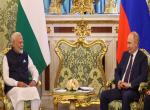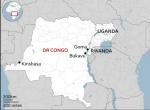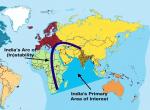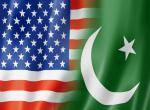An objective evaluation of changing contours of our engagement with Africa, especially in light of significant developments in 2010, might interest Africa watchers and others.
Conceptual richness and consistency appear to characterise recent interactions, although their impact may still take a while to be felt tangibly.
Backdrop
If the period from our Independence to the end of the 1980s was marked by India's close involvement with Africa in political affairs, peacekeeping, training, culture and education, the 1990s turned out to be a lost decade. That was the time when policy makers were busy trying to re-adapt India's foreign policy to the post-Cold War world. Subsequently, the Africans' unhappiness with their neglect by India, China's rapidly growing profile on the continent, and the enhanced dynamism of India Inc. combined to initiate a renewal of India-Africa relations. The Government's three initiatives, namely the ‘Focus Africa Programme' under Exim policy for 2002-07, the ‘Techno-Economic Approach for Africa and India Movement' or TEAM-9 programme, launched in 2004 to upgrade economic relations with West Africa, and the Pan-African e-Network started in 2007, helped in sending the signal that India had not vacated space in Africa for others.
In this backdrop, the India-Africa Forum Summit (IAFS) in 2008 represented a veritable high point, showcasing a new, vibrant India as well as its reinvigorated Africa policy. The following year was a relative disappointment. But, developments during 2010 seem to have put India's engagement with Africa on a fast track.
Highlights
India played host to at least eight high-level African dignitaries, one each from the Seychelles, Ghana, South Africa, Botswana, Mozambique, Kenya, Malawi and Ethiopia. Visits by presidents, prime ministers and other VIPs throughout the year demonstrated that Africa was keen to expand political and development cooperation with India. Armando Guebuza, President of Mozambique, endorsed India's approach towards Africa, expressing readiness “to raise the (bilateral relationship) to a strategic partnership.” Hailemariam Desalegn, Deputy Prime Minister and Foreign Minister of Ethiopia, chose to accord high importance to economic issues. Following a productive meeting of the joint commission, the two sides decided, “to infuse the close political relationship with greater economic content.” The visit by South African President Jacob Zuma helped in re-defining the bilateral agenda and re-launching the joint CEOs Forum.
Happily, Indian leaders found time to visit Africa in 2010. Vice-President Hamid Ansari's three-country tour covering Zambia, Malawi and Botswana was a notable success. Given his credentials, he was able to evoke old memories of deep political and emotional affinity as well as highlight mutuality of interests and the need for expansion of economic cooperation, thus lending a contemporary character to age-old ties. That he backed it with the announcement of credits and grants (for the three countries) amounting to about $200 million, in addition to credit lines valued at $60 million that were operational prior to the visit, showed India's new strength. This was on display again as the Government agreed to arrange major lines of credits for others: $705 million for Ethiopia for sugar and power sector development and $500 million for Mozambique for infrastructure, agriculture and energy projects.
The decision by the IAFS to set aside $5.4 billion for lines of credit and $500 million for human resource development during a five-year period means that now nearly $1 billion a year is available for cooperation with Africa. Utilising India's new financial muscle, an ambitious expansion of training programmes for the benefit of Africans is being attempted at present.
External Affairs Minister S.M. Krishna got a direct feel of issues and personalities on his visit to the Seychelles, Mauritius and Mozambique. As these are all Indian Ocean countries, the strategic dimension of cooperation, especially relating to piracy, terrorism and changing foreign maritime presence, received considerable attention during his discussions. Later the minister, talking to a group of African journalists visiting India, emphasised that our relationship with Africa had “transformed”, with the two sides becoming “development partners looking out for each other's interests and well-being.”
Commerce and Industry Minister Anand Sharma undertook visits to South Africa, Nigeria, Ghana and Kenya. He was instrumental in facilitating and moulding business-to-business dialogues in all the countries visited, with the help of organisations such as the Confederation of Indian Industry (CII) and the Federation of Indian Chambers of Commerce and Industry (FICCI). For business level exchanges, however, the most significant event in the year was CII-Exim Bank Conclave, held in Delhi in March. About 1,000 delegates attended it, half of whom were from various African countries.
Bilateral trade
Bilateral India-Africa trade, which stood at about $1 billion in 2001, has now reached the $40 billion mark. It is an encouraging growth. Figures about India's investments in Africa are confusing, but by taking an average of the figures of cumulative investments released by the Reserve Bank, the CII and the United Nations Development Programme (UNDP), one could place a value of $50 billion on them.
Three other highlights need to be mentioned here. First, India hosted a meeting of top officials of Africa's Regional Economic Communities (RECs). A first of its kind, the meeting was attended by six of the eight RECs, namely Common Market for Eastern and Southern Africa (COMESA), East African Community (EAC), Economic Community of West African States (ECOWAS), Southern African Development Community (SADC), Community of Sahel-Saharan States (CEN-SAD) and United Nations Association/Arab Maghreb Union (UNA/AMU). It gave them the opportunity to interact with numerous Ministries and business enterprises. Coverage of areas viz stock exchanges, small industry, food processing, infrastructure, IT and telecommunications was quite wide. The visitors expressed “gratitude” to India for the initiative “to recognise the regional dimension of Africa's development.”
Second, top officials of the Ministry of External Affairs (MEA) undertook visits to Kampala and Addis Ababa in order to carry forward India's dialogue with the African Union (AU) for nurturing ties at the continental level. On the sidelines of its 15th Summit in Kampala in July, Jean Ping, Chairman of the African Union Commission (AUC), expressed immense satisfaction at the model of engagement created by India, adding that it was “the most unique and preferred of Africa's partnerships.” In plain language, he seemed to confirm the view that among many suitors of Africa, both old and new, the two most active are China and India. Ping was also happy with “the determined pace at which implementation (of IAFS decisions) has been undertaken.” However, this might have been more credible had the two sides announced, by now, the venue and timing of the second IAFS.
Third, a boost to our Africa diplomacy came with the announcement of the Hermes Prize for Innovation 2010 for India's Pan-African e-Network project. The prize was given by the European Institute of Creative Strategies and Innovation, a prestigious think tank. It called the project as “the most ambitious programme of distance education and tele-medicine in Africa ever undertaken.”
A few tips
While moving determinedly to strengthen relations with Africa, the Government needs to do more. African diplomats still speak of the deficit in India's political visibility. Therefore, our President and Prime Minister should find time to visit Africa in 2011. More visits by Mr. Krishna would be helpful. Implementation of the first IAFS decisions, though improving, needs to be speeded up. India Inc. should be more active. In preparing for the second IAFS, South Block should draw from outside expertise. The civil society's potential to strengthen people-to-people relations should be tapped optimally. By according higher attention to Africa, the media could serve as a valuable bridge of mutual understanding.
Finally, India should declare and celebrate 2011 as its Africa Year.
-----------------------------------------------------------
Published in The Hindu dated December 27, 2010










Post new comment